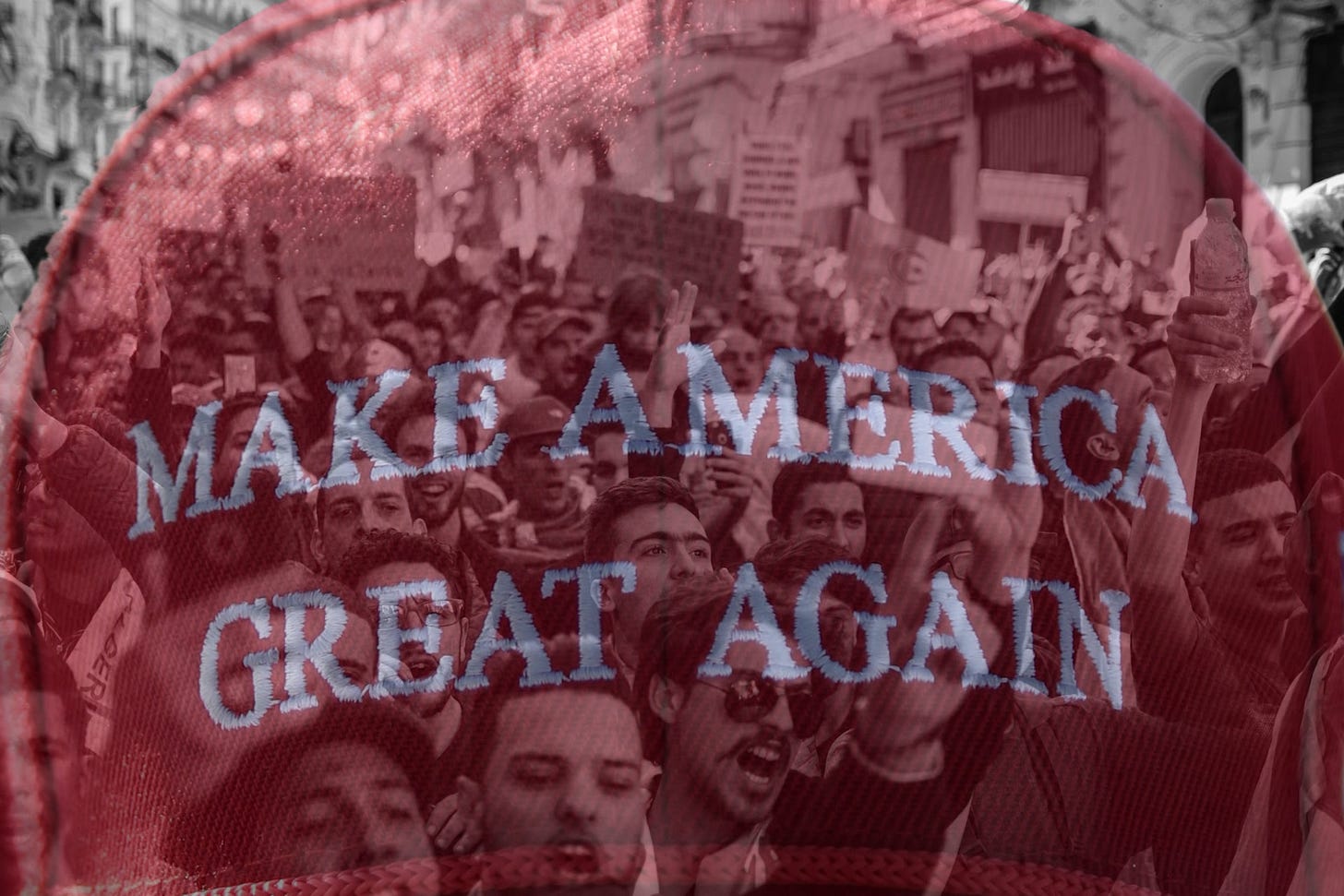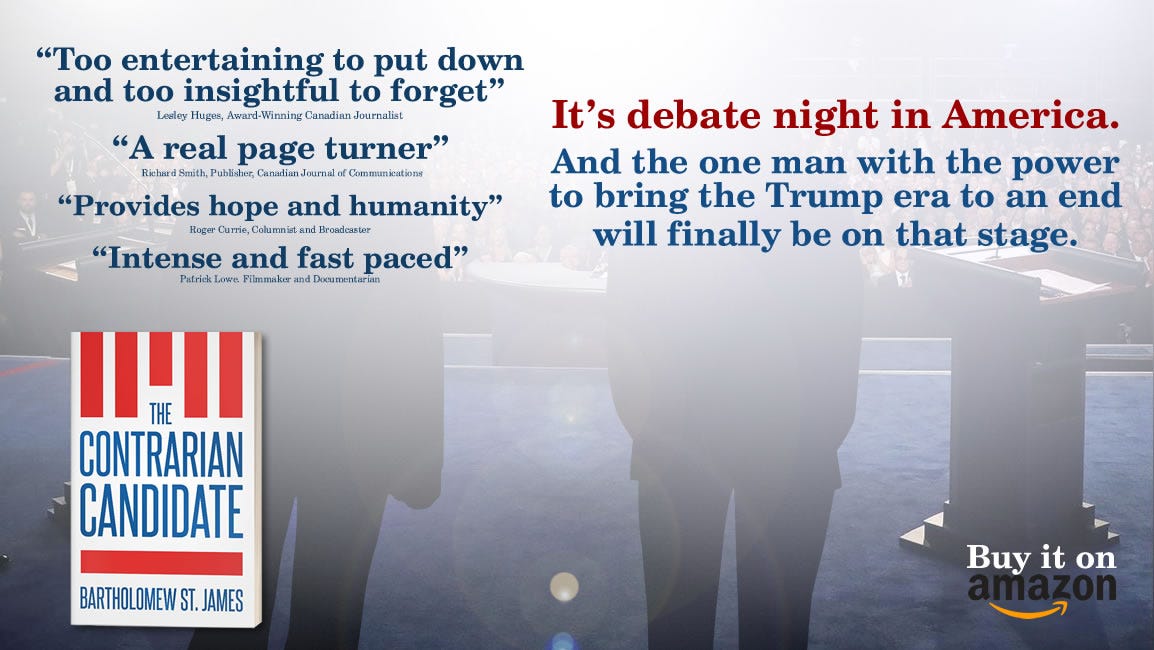It’s hard to say when it actually began. But that’s always going to be the case when considering an act of omission.
Yet that is the situation when trying to determine when it became a reality that men and their issues were no longer considered an acceptable facet of political debate. And I’m not talking about men being the only focus. I’m talking about men being a focus, one of many.
Whatever the exact moment, the fact remains that over the last few decades, men have continued to loose their ability to have their unique concerns addressed in the political realm, to the point where men’s issues are totally absent from the politics of our day.
If you don’t believe that to be true, then have a go at a little experiment. Try listing all the political issues currently being discussed that are specific to men, in the ways that issues such as reproductive rights, sexual abuse and assault, and pay equity, are specific to women – or affirmative action to women, people of color and the LGBT+ community. In fact, try to name even one issue that is specific to men which has gotten anywhere near the attention in recent years of any of those issues.
The sad truth is there isn’t one. And that’s especially problematic for working-class men.
I say that because college-educated men seem satisfied enough with being limited to other, less personal, more macro-level concerns, such as the environment and democracy – or non-gender-related issues, such as college debt.
They also seem more inclined to cast their political attention (along with their votes) in the direction of the women in their lives – and in so doing, support issues which are of particular concern to women. In fact those men often seem to feel they have the luxury of doing that even when those stances may be counter to their own personal interests, such as supporting affirmative action laws that may end up denying them access to certain jobs.
Of course one reason they’re likely able to have that rather altruistic view, is that college-educated men are not nearly as vulnerable to many of the more problematic consequences of being male – such as homelessness and incarceration – which along with issues like suicide and addiction, have much higher rates for men than women, even as they tend to affect college-educated men to a much lesser degree than those in the working-class.
And that makes it all the more troubling that working-class men are so much more likely to be left behind by the kind of politics practiced today – because that politics is all about identity. They are being left behind because those men have no political identity, at least none worth having – meaning none that gives them the power to get what they need from the political system.
Which means that as a man, even if you’re addicted, homeless and suicidal, no one cares about you politically – at least not to the extent that would allow your personal issues to receive the attention they need. And even though most working-class men do not suffer from any of those difficulties, they are much more likely to feel that those looming calamities are just a single medical diagnosis or auto repair bill away.
And to make matters even worse, not only do those men have nowhere to turn for political support – they are seen by the political class as being the source of all the problems being faced by all the other demographic groups that do enjoy their support.
So to those men it must seem as though they are in a multi-defendant criminal trial, in which they are the only defendants without a lawyer. And as a result, every one of the other lawyers, the prosecutor included, is constantly pointing an accusatory finger at them as the real criminals. So not only are they not able to see or feel any sense of redress in the political realm, they instead encounter nothing but resentment, hatred and isolationism for their concerns.
So where can they turn for support? Well, the politician that seems to get most of their attention is that big orange clowncar driver, Donald Trump. And it isn’t as though Trump is going to actually do anything for them. Because he advocates for no issues that are of any real value to them (unless they happen to be in his multi-million dollar tax bracket, or were among the January 6th rioters).
So no, he does not offer them anything in the way of true support. But there is one thing they can count on from him. And it’s one of the few rational aspects of Trump’s appeal to working-class men – he does not demonize them by calling them the root of all evil and oppression in the world. Plus he tends to bash those groups and individuals who do demonize them, like academia, the media, and the Hollywood elite. But that’s about all they can count on from him.
So given decades of disregard for working-class men, if not outright ostracization, how can the Democrats or any other political entity bring these men over to their side? That is a difficult question given how disagreeable, even distasteful, it is for those men to be viewed as being in need – not only by those around them, but by the men themselves. And that attitude also says something about how we arrived at this point politically (though there are other reasons, as pointed out in this post).
There has been some progress in encouraging men to open up to their feelings and vulnerabilities. But that message has mainly been absorbed by college-educated men.
As a result, the only approach I know of for reaching out to those working-class men, comes from fiction, and a plot line in The Contrarian Candidate – which may be instructive here for a couple of reasons.
That plot line centers around an ad campaign directed at working-class men, which had to be conducted digitally in order to help conceal its existence. That was done because of the worry that if word got out that the campaign was appealing to white working-class men, it would spark outrage in the media and beyond, and that that outrage would suggest that those ads were dog whistles directed at neo-Nazis and other white supremacists. Plus the progressive woman who conceived of the ads was also worried about being “canceled” by her former colleagues for her part in the campaign.
Yet given the politics of our day, that seemed the only plausible way an anti-MAGA candidate for the Republican presidential nomination, could make it onto the debate stage the night of the novel.
But in the real world of today, I expect the Democrats have another option. They have President Biden, the working-class Joe, who could carry a message to working-class men without much fear of that kind of personal backlash.
Though by appealing to working-class men, I’m not talking about his current efforts at holding rallies at union shops. Because supporting their union or even their industry, will not get it done. Instead, I’m talking about addressing the kinds of issues that are specific to working-class men in the way other issues are specific to members of other identifiable groups. Because that is what is missing from the political lives of these men. And that absence is what has caused so many of them to give up on the political system, and instead drift towards a man like Donald Trump – whose only agenda appears to be blowing up that system.
And if things don’t change before November, he might just get his way.
But why would we expect anything to change, when we live in a world in which it is controversial, if not outright forbidden, to appeal to half the voters of the country. Which tells me that issues concerning men, especially working-class men, have become a new third rail of American politics, a development that has already led to the election of Donald Trump. And current polling suggests it might just do that again.
For more adventuresome reading, check out my novel. And tell your friends.
The Contrarian Candidate is a high-stakes political thriller about our fraught and turbulent times, including how to undermine and defeat an unapologetic narcissist like Donald Trump.
Bartholomew St. James is a one-time political operative who’s turned his talents to reporting on the politics of our day. And he’s done it with fiction, because he feels that’s the best way to tell the story of a deeply divided nation and the challenges that presents.
He’s also the author of The Progressive Contrarian on Substack: Providing common sense answers to complex questions, by seeing the world through contrarian eyes.






